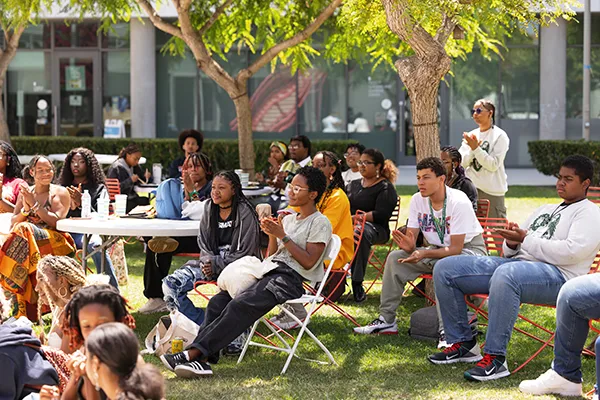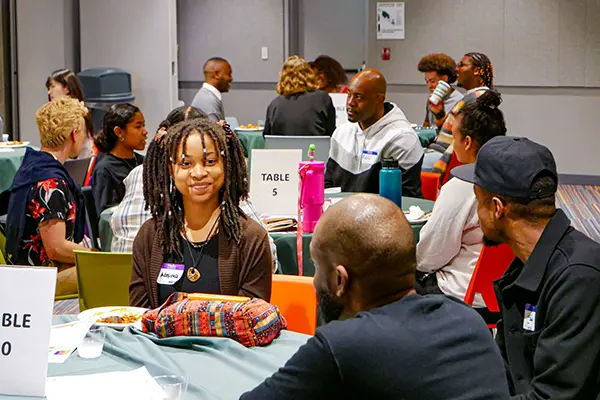Programs Supporting our Otis College Community
Otis College is committed to fostering a welcoming and engaged community. A series of marquee programs have been developed to help realize these goals. Open to all, our student-centered programs are meant to develop a strong sense of belonging while empowering the next generation of creatives. We invite you to learn more about these programs below:
Otis College's Pre-Orientation Program, Otis Creatives Institute, is focused on developing an inclusive and affirming campus climate for incoming students in an effort to increase student engagement, first- to second-year retention, and support degree completion.
The BIPOC Student Summit is committed to building community among students of all backgrounds, allowing them to connect on their shared experiences as diverse emerging creatives navigating the creative economy.

